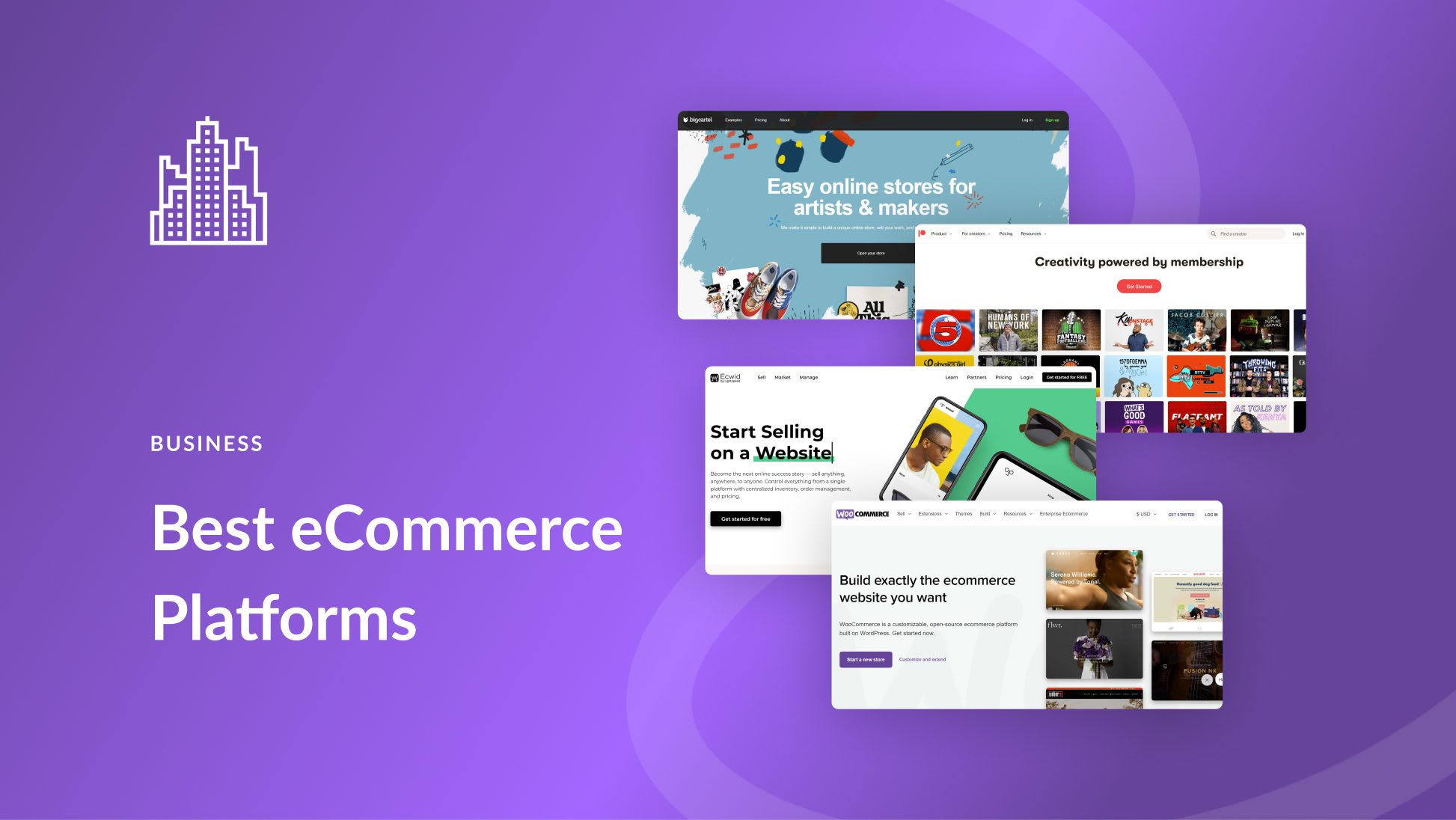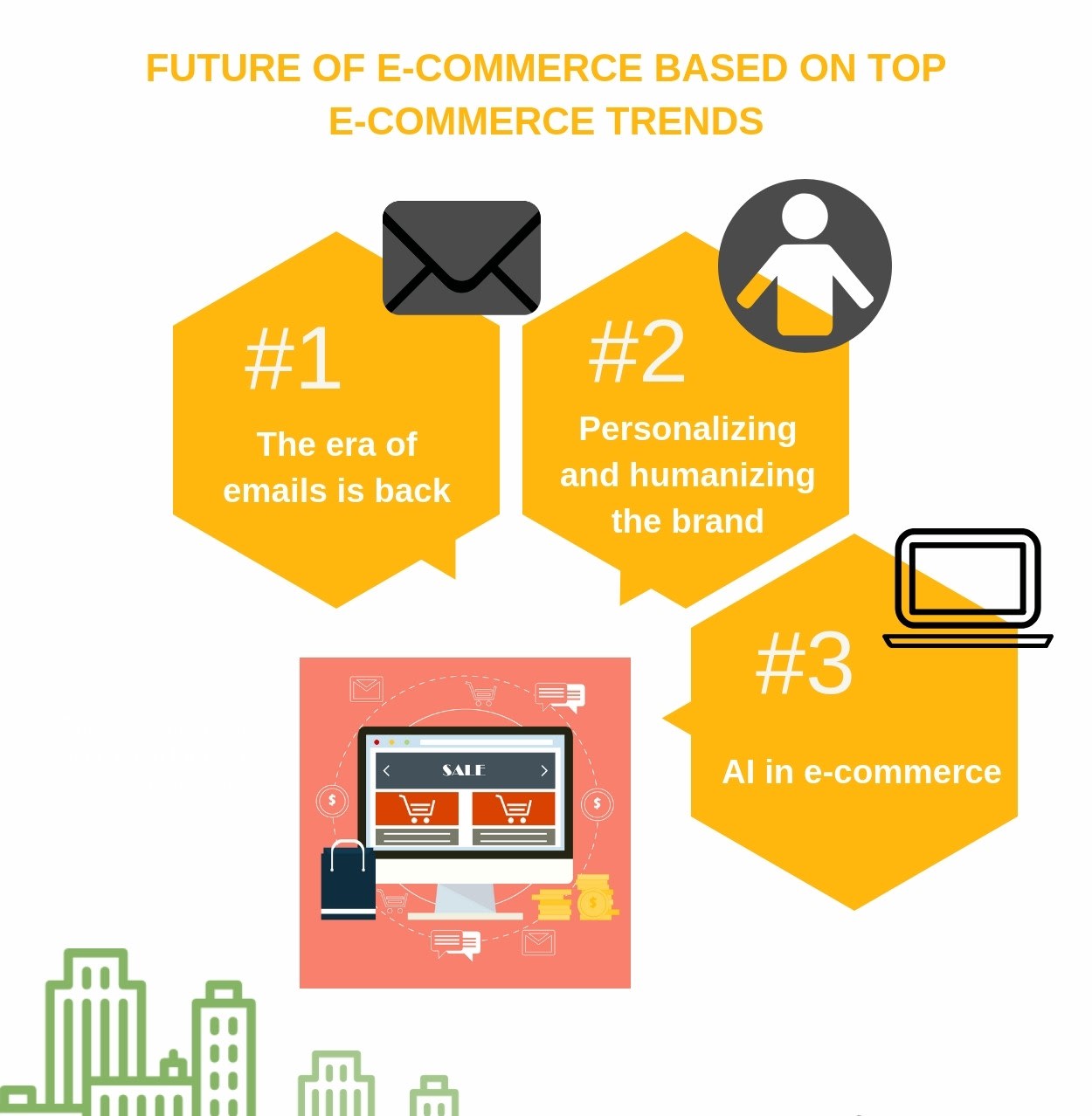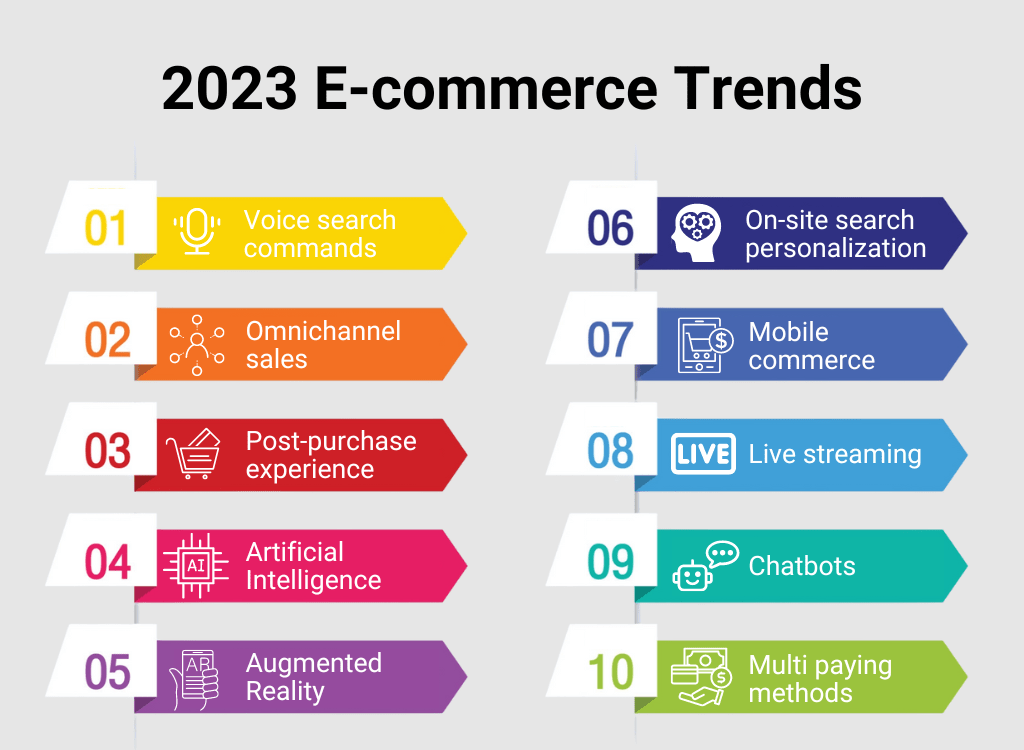Best E-commerce Business To Start in 2023

Table of Contents
- Introduction:
- 1. Which e-commerce model is most profitable?
- 2. What are the business trends in 2023?
- Mobile Commerce (m-commerce)
- Personalization
- Voice Commerce
- Sustainability and Ethical Consumption
- Augmented Reality (AR) and Virtual Reality (VR)
- What is the next generation of e-commerce?
- Augmented Reality (AR) and Virtual Reality (VR)
- Artificial Intelligence (AI)
- Internet of Things (IoT)
- How is e-commerce booming?
- Global Reach
- Convenience
- Diverse Product Range
- Technological Advancements
- Is e-commerce safe for business?
- What is the biggest risk for e-commerce?
- What is the most sold product in the world?
- Conclusion
- FAQs
Introduction:
In today's digital era, launching an e-commerce business has become an enticing prospect for entrepreneurs looking to tap into the ever-expanding online market. With numerous options available, it's crucial to identify the most promising e-commerce ventures that offer the potential for profitability and growth. In this article, we will explore the best e-commerce business opportunities to consider in 2023. From the most profitable e-commerce models to the next generation of e-commerce and the biggest risks involved, we will provide insights to help you make informed decisions for your venture.
1. Which e-commerce model is most profitable?
Determining the most profitable e-commerce model requires considering various factors such as industry, target audience, and business model. While profitability can differ based on specific circumstances, the direct-to-consumer (D2C) model has gained significant traction. By eliminating intermediaries and establishing direct connections with customers, businesses can maximize profits, maintain control over their brand image, and gather valuable consumer data.
2. What are the business trends in 2023?
In 2023, several e-commerce trends will shape the business landscape:

Mobile Commerce (m-commerce)
The rise of smartphones and faster internet speeds has propelled mobile commerce. Optimizing websites and platforms for mobile devices is crucial for providing seamless user experiences and catering to the growing number of mobile shoppers.
Personalization
Tailoring the shopping experience to individual customers through personalized recommendations, product suggestions, and targeted marketing efforts enhances customer engagement, and loyalty, and drives sales.
Voice Commerce
The advent of voice-enabled devices and virtual assistants has given birth to voice commerce. Customers can now make purchases using voice commands, prompting businesses to optimize their platforms for voice search and shopping to stay competitive.
Sustainability and Ethical Consumption
Consumers are increasingly inclined towards eco-friendly and ethically produced products. Businesses that embrace sustainable practices and transparent supply chains gain a competitive advantage, appealing to the conscious consumer demographic.
Augmented Reality (AR) and Virtual Reality (VR)
AR and VR technologies provide opportunities for customers to visualize products before purchasing, thereby enhancing the online shopping experience and reducing return rates. Integration of these technologies can create a distinct competitive edge.
What is the next generation of e-commerce?
The next generation of e-commerce is characterized by emerging technologies and evolving customer expectations. Key elements of this evolution include:

Augmented Reality (AR) and Virtual Reality (VR)
AR and VR technologies offer immersive experiences, allowing customers to virtually interact with products, visualize them in real-world settings, and make more informed purchase decisions.
Artificial Intelligence (AI)
AI-powered chatbots, customer service, and personalized recommendations revolutionize how businesses engage with customers. By leveraging AI, e-commerce platforms can deliver tailored experiences, improving customer satisfaction and conversion rates.
Internet of Things (IoT)
IoT connects devices and enables seamless ordering and reordering of products. Integration of IoT with e-commerce platforms paves the way for smart home devices and wearables to serve as new sales channels, enhancing convenience and accessibility for customers.
How is e-commerce booming?
E-commerce is booming due to various factors:
Global Reach
The Internet allows businesses to reach customers worldwide, transcending geographical limitations and expanding market opportunities. E-commerce facilitates seamless cross-border transactions, opening doors to a vast customer base.
Convenience
Online shopping provides unparalleled convenience, enabling customers to browse and purchase products anytime, anywhere, and from any device. The ease of online transactions contributes to the exponential growth of e-commerce.
Diverse Product Range
E-commerce platforms offer an extensive array of products, making it easier for consumers to find specific items and compare prices. The convenience of finding diverse products in one place contributes to the overall boom of e-commerce.
Technological Advancements
Secure payment gateways, improved logistics and delivery services, and personalized experiences have enhanced the e-commerce landscape. Technological advancements have made online shopping safer, faster, and more enjoyable for customers, fueling the growth of e-commerce.
Is e-commerce safe for business?
While no system is completely immune to risks, e-commerce platforms have implemented robust security measures to protect businesses and customers. Encryption technologies, secure payment gateways, and data protection protocols help safeguard sensitive information. However, businesses must remain vigilant and adhere to best practices in cybersecurity to mitigate potential risks.
What is the biggest risk for e-commerce?
The biggest risk for e-commerce revolves around data breaches and cyberattacks. Hackers target businesses to gain access to customer data, financial information, and intellectual property. These breaches can result in reputational damage, legal consequences, and financial losses. Implementing stringent security measures and regularly updating security protocols are essential to minimize these risks.
What is the most sold product in the world?
Identifying the most sold product in the world is challenging as it varies based on market segments and timeframes. However, certain products consistently perform well, including smartphones, electronics, clothing, and consumer packaged goods. The specific top-selling product can fluctuate based on consumer demand, cultural influences, and market trends.
Conclusion
As the e-commerce landscape continues to evolve, aspiring entrepreneurs must stay abreast of the latest trends, business opportunities, and risks. By understanding the profitability of e-commerce models, embracing emerging technologies, prioritizing customer experience, and prioritizing cybersecurity, businesses can thrive in the dynamic world of e-commerce. Remember to adapt strategies to consumer preferences and leverage the booming e-commerce market to launch and grow your online business successfully.
FAQs
Launch your online store in 2 minutes with StoreBud! Looking to start your own e-commerce business?
Q2: What are some key strategies for succeeding in the e-commerce industry?
Some key strategies for success in e-commerce include offering unique products or experiences, providing exceptional customer service, optimizing your website for mobile devices, leveraging social media marketing, and continuously adapting to evolving consumer trends.
Q3: Is it necessary to invest in emerging technologies like AR and VR for e-commerce success?
Investing in emerging technologies like AR and VR can provide a competitive advantage and enhance the customer experience. However, it is important to assess the specific needs of your business and target audience to determine if and how these technologies can add value.
Q4: How can I ensure the safety of my e-commerce business and customer data?
To ensure the safety of your e-commerce business, implement secure payment gateways, SSL encryption, and robust data protection measures. Regularly update software and security protocols, educate employees about cybersecurity best practices, and monitor for any potential vulnerabilities or threats.
Q5: What are some effective marketing strategies for promoting an e-commerce business?
Effective marketing strategies for e-commerce include search engine optimization (SEO), social media advertising, influencer partnerships, content marketing, email marketing campaigns, and offering exclusive promotions or discounts to attract and retain customers.